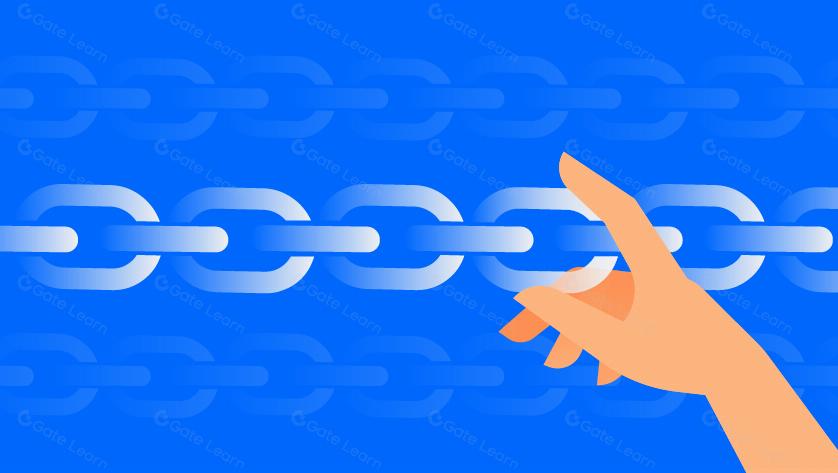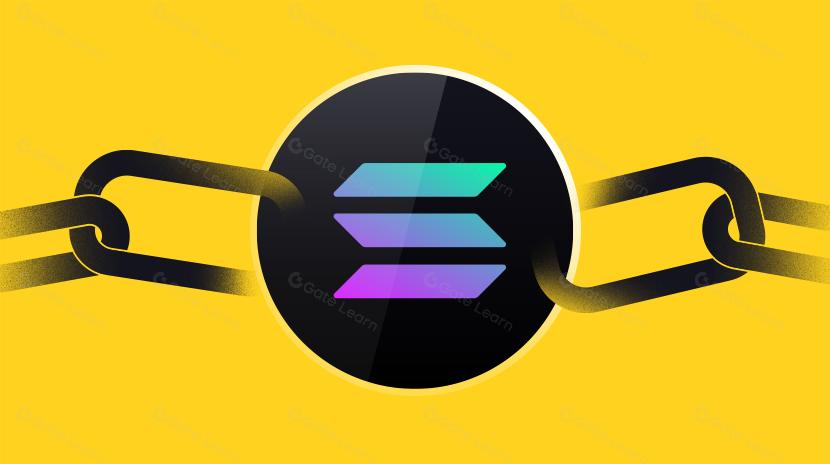TRC20

What is TRC20?
TRC20 is the token standard on the TRON blockchain, specifying a set of required interfaces that enable wallets and exchanges to consistently identify, transfer, and authorize tokens. It functions as a “unified interface,” allowing any token adhering to the standard to be seamlessly supported by common tools.
TRON is a public blockchain network, operating like a globally shared ledger. Smart contracts are automated programs deployed on the chain—similar to “vending machines”—executing predetermined rules. TRC20 tokens are digital assets managed and recorded via smart contracts, such as USDT-TRC20. TRC20 addresses typically start with “T,” which differs from Ethereum’s “0x” address format.
How does TRC20 work?
TRC20 enables token creation, transfers, and authorization through smart contracts, with wallets and applications interacting via standard interfaces. Key functions include transfer (sending tokens), balanceOf (checking balances), approve (granting permissions), and allowance (checking authorized amounts).
When you initiate a transfer in your wallet, it calls the transfer function on the token contract, creating an immutable record on the blockchain. Exchanges monitor contract transfer events for deposits. The TRON Virtual Machine supports Solidity, so developers can write contracts much like on Ethereum, though the execution environment and resource model differ. TRON’s resource model comprises “Bandwidth” and “Energy”: bandwidth is used for writing transaction data; energy is consumed for contract execution. Both can be acquired by holding or freezing TRX.
How is TRC20 different from ERC20?
Both TRC20 and ERC20 are token standards, but they run on different networks: TRC20 operates on TRON, while ERC20 runs on Ethereum. This results in differences in address format, fee structure, and ecosystem.
Address: TRC20 addresses begin with “T” (Base58 format); ERC20 addresses start with “0x” (hexadecimal). Fees: TRC20 uses a bandwidth and energy resource model, generally resulting in lower costs. ERC20 relies on the Gas model, where fees fluctuate based on network congestion and gas prices. Ecosystem: Each has its own set of supported tools and applications. Cross-chain transfers require bridging; sending TRC20 tokens directly to an ERC20 address can lead to asset loss.
How do you use TRC20? How to choose the right wallet or exchange for deposits and withdrawals?
When using TRC20, it’s essential to select the correct network and address and ensure you have enough TRX for resource fees. Wallets and exchanges will indicate “TRC20.”
Step 1: Confirm the recipient provides a TRC20 address, typically starting with “T.” If it begins with “0x,” it is an Ethereum or compatible chain address—not suitable for TRC20.
Step 2: When adding a TRC20 token in your wallet, use the officially published contract address rather than relying only on the token name.
Step 3: Reserve some TRX to pay for energy or freeze resources to ensure smooth contract execution.
Step 4: First perform a small test transfer; once confirmed, proceed with larger amounts as needed. Use Tronscan to review transaction details and status.
On Gate, when depositing USDT, select the “TRC20 Network” and copy the deposit address starting with “T.” For withdrawals, also choose “TRC20” and paste the target address. Using the wrong network may result in lost assets or difficulty recovering funds—exercise caution.
How are TRC20 transaction fees calculated?
TRC20 fees are determined by bandwidth and energy consumption on TRON and are generally low, though some TRX is required. Regular transfers use more bandwidth; contract interactions consume energy.
Bandwidth: Required for writing transaction data; each account has a free quota. Exceeding this requires freezing TRX or paying with TRX for extra bandwidth.
Energy: Needed for executing contract logic; can be obtained by freezing TRX for persistent energy or paid directly with TRX during transactions.
Practical tips: Keep sufficient TRX in your address; frequent users should consider freezing TRX to reduce long-term costs. Always confirm estimated fees in your wallet or exchange to avoid failed or delayed transactions due to insufficient energy.
Common Applications of TRC20
TRC20 is widely used for stablecoin payments, exchange deposits/withdrawals, cross-border transfers, and various dApps. USDT-TRC20 is favored by traders and merchants due to its low fees and fast confirmations.
For payments, merchants can display their TRC20 address to receive funds. On exchanges, users select “USDT-TRC20” for fast deposits or withdrawals. In on-chain applications like games or swaps, contracts utilize the TRC20 standard for balance queries and transfers. According to Tether’s 2024 issuance data, USDT circulation on the TRON network leads other chains—highlighting TRC20’s prominence in stablecoin transfers (source: Tether official issuance page, 2024).
How to verify and avoid scams with TRC20 tokens?
To verify a TRC20 token, check its contract address—do not rely solely on its name or icon. Fake tokens often mimic legitimate names and logos.
Step 1: Search the project name on Tronscan (the official TRON block explorer), review its token details page, contract address, issuing account, and transfer records.
Step 2: Obtain the official contract address from the project website, official social media, or Gate’s announcement page; use this address when adding the token to your wallet.
Step 3: When adding a token in your wallet, paste the contract address and verify its name and decimals to avoid counterfeit tokens.
Step 4: Be cautious when using approve permissions—this allows contracts or platforms to manage a set amount of your tokens. Regularly revoke unnecessary approvals via your wallet or Tronscan to prevent “phishing approvals.”
Step 5: Watch out for airdrop scams, fake customer service agents, or fraudulent deposit addresses. Always test transfers with small amounts first and ensure you select the “TRC20” network.
What do you need to develop and issue a TRC20 token?
Developing and issuing a TRC20 token requires writing and deploying a smart contract on TRON, typically using Solidity. Standard interfaces must be thoroughly tested.
Step 1: Define basic token parameters—name, symbol, total supply, decimals—and clarify minting/burning permissions.
Step 2: Write and locally test your TRC20 contract using TronIDE or tronweb-based frameworks to ensure functions like transfer and approve work correctly.
Step 3: Prepare your deployment account and resources; after deployment, verify your contract on Tronscan and publish the source code for transparency and auditability.
Step 4: Implement robust security measures and access controls to avoid centralization risks. For exchange listings, follow platform procedures and pass risk reviews.
Step 5: Publish the official contract address and usage instructions to guide users in correctly adding your token—reducing confusion with fake tokens.
Key Takeaways about TRC20
TRC20 is a unified rule set enabling tokens on TRON to be reliably identified and used by all participants. Understanding its standard interfaces, address format, and resource model is fundamental for safe usage and development. In wallet and exchange scenarios, selecting “TRC20 network,” verifying contract addresses, and reserving enough TRX for resources minimizes errors and costs. To mitigate cross-chain and approval risks, always test with small amounts first, validate information from authoritative sources, and promptly revoke unnecessary approvals—protecting your assets. With its strong presence in stablecoin payments and frequent transactions, TRC20 continues to power high-frequency, low-cost on-chain transfers and applications.
FAQ
Does transferring USDT-TRC20 require spending TRX?
Yes. USDT-TRC20 transfers require a small amount of TRX as network fees. Each transaction typically costs between 1-5 TRX depending on network congestion. It’s recommended to keep sufficient TRX in your wallet to ensure smooth transfers; reserving around 10 TRX helps cover network fluctuations.
Are TRC20 tokens secure? Can they be stolen easily?
TRC20 is an official protocol standard on TRON—generally secure—but actual safety depends on personal management practices. The main risks are private key leaks, fake tokens scams, and malicious contracts. Always use official wallets, verify contract addresses, avoid suspicious links, and operate through reputable exchanges like Gate to greatly reduce risks.
My USDT is on TRC20 but I want to transfer it to Ethereum’s ERC20—what should I do?
TRC20 and ERC20 are standards for different blockchains; USDT cannot be transferred directly across chains. You must exchange it via an exchange platform: withdraw your USDT-TRC20 as ERC20-USDT on Gate or similar platforms—or sell it for fiat/other coins then buy ERC20-USDT. Cross-chain bridge tools are available but should be used cautiously after verifying contract security.
Why are USDT transaction fees so different between TRC20 and ERC20?
This difference comes from the distinct design philosophies of each blockchain. The TRON network uses a delegated proof-of-stake consensus mechanism with relatively low transaction fees (usually just cents); Ethereum uses proof-of-work (now proof-of-stake), resulting in higher—and more volatile—gas fees. For frequent small transfers, TRC20 offers clear cost advantages.
How can you tell if a TRC20 token is genuine or fake?
To verify a TRC20 token, check its contract address and project background. Use Tronscan.org to look up official information using the contract address—confirm details about the project team and holders; check reputable exchanges like Gate to see if the token is listed; monitor the project’s website and social media activity. Do not trust private recommendations for obscure coins.
Related Articles

The Future of Cross-Chain Bridges: Full-Chain Interoperability Becomes Inevitable, Liquidity Bridges Will Decline

Solana Need L2s And Appchains?
